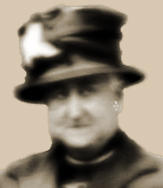The social model of disability
[The Union] is committed to tackling discrimination against its members. But it can’t do that effectively unless it understands the true nature of the discrimination those members experience. When it comes to disability, this can be difficult. We are all – consciously or not – affected by media representations of disabled people as being either terribly brave, or objects of pity. And sometimes both at the same time. The traditional approach to disabled people is to think of us as having experienced personal medical tragedy, and as needing help to be made as “normal” as possible.
But increasing numbers of disabled people see attempts to change, 'fix' or 'cure' them, especially when it’s against their wishes, as discriminatory and prejudiced. It’s damaging to your self-esteem when you’re constantly being told that, on a very basic level, you’re not as good or as valuable as non-disabled people. Also, it is clearly not our medical conditions which place us at such a comparative disadvantage.
The social model of disability grew out of disabled people’s rejection of the way in which they were perceived by society. It distinguishes between two entirely separate elements of a disabled person’s experiences.
Firstly, we have impairments. We experience functional loss or difference. Of course, lots of people have some degree of functional loss, however minor. But they are only disabled if there is a negative social response to them because of that impairment. The DEMOS think tank came up with a very clear example of the point at which a particular impairment will result in disability, as follows:
“A person with impaired vision requiring reading glasses would not see themselves as disabled if they lived in the UK. But if they lived in a rural area of Africa they may well be, as they might have been excluded from a proper education and would find it more difficult to find employment.”
We live with the impact of our impairments every day. For some of us, that in itself is difficult and exhausting. But it’s not disability.
Disability is the negative interaction between people with impairments and the physical, environmental and attitudinal barriers in society which prevent their full inclusion in it. We are disabled and excluded because society doesn’t take full account of individual difference.
Still struggling to understand (or even care about) the difference between impairment and disability? And why that difference is important? Perhaps some examples will help:
Traditional/Medical Model
John can’t get into this building because he’s in a wheelchair.
Social Model
John is a wheelchair user. He’s disabled by the fact that this building doesn’t have a ramp or a lift.
There’s no point in inviting Susan to this meeting because she’s deaf, so she won’t be able to contribute.
Susan is disabled by the fact that the room we’re holding the meeting in doesn’t have an induction loop.
Damon can’t use this website because he’s blind.
Damon is disabled by the fact that this website doesn’t meet the legal accessibility requirements.
Linda can’t be given a job on the reception desk because she’s not what our visitors will want to see.
Linda is disabled by people’s attitudes towards facial disfigurement.
In each of these examples you can see that, according to the traditional approach to disability, the problem lies with the disabled person. The disabled person is different and doesn’t fit in. But if you look at the same examples from a social model perspective, the problem lies with the failure of the other people in the equation to make the necessary adjustments. In other words, disability is discriminatory behaviour towards people who have impairments. And that’s what the Disability Discrimination Act is designed to legislate against, and therefore what [the Union] is committed to fighting against. Not the fact that we have impairments, but the discrimination we experience because we have those impairments.
Language is important in all equality agendas, and disability is no different. Disability is something which happens to people with impairments, not something which is part of them. To those who agree that the social model of disability reflects their life experiences, the phrase “people with disabilities” means “people with social oppressions”: it’s simply illogical.
If all the barriers to our participation in society were removed, disability would cease to exist. We would still have impairments, but we wouldn’t be disabled. Just as, if negative attitudes towards gay people disappeared, homophobia wouldn’t exist.
The social model removes the stigma from self-identifying as a disabled person. Under the social model, describing yourself as disabled isn’t an admission of weakness: it’s recognition of the fact that you experience a form of discrimination which is deeply embedded in our society. And, of course, once you’ve identified where the problem lies, you can start to put together a strategy to tackle it.

















